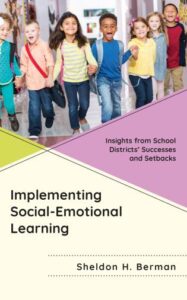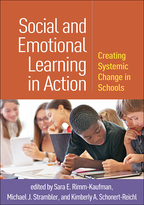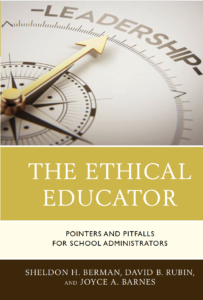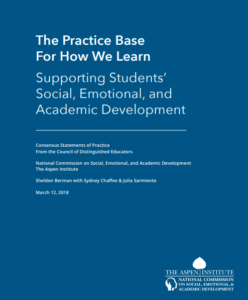The Ethical Educator:
Pointers and Pitfalls for School Administrators
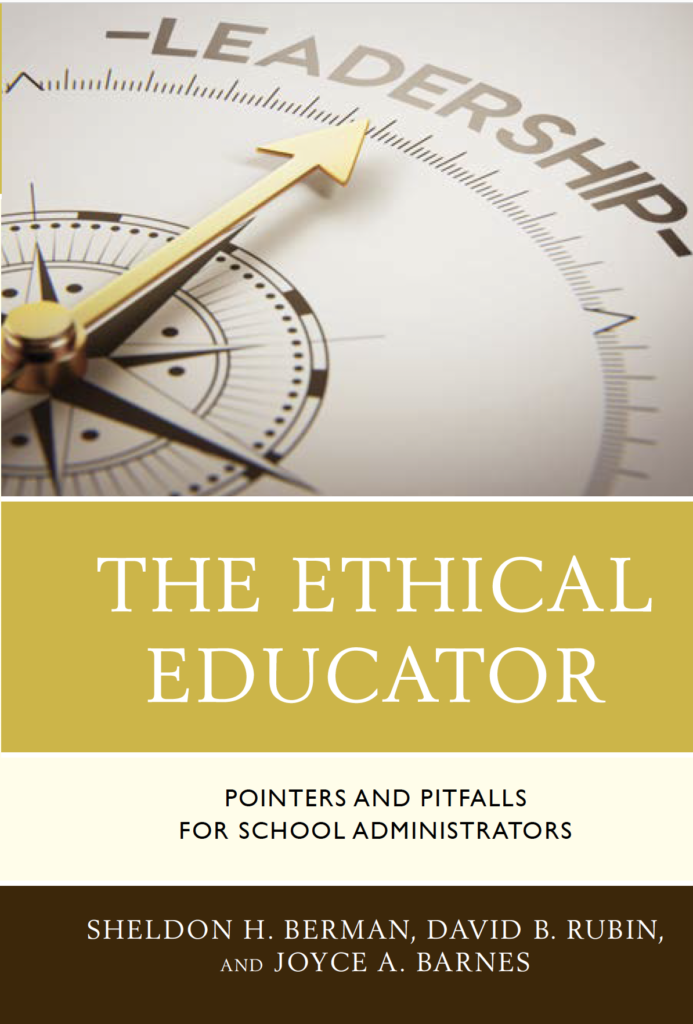
The Ethical Educator: Pointers & Pitfalls for School Administrators is an accessible, nuts-and-bolts resource for education leaders at the school and district levels as they confront difficult ethical situations in their day-to-day work. The book features 100 real-life cases drawn from School Administrator magazine’s Ethical Educator column over the past ten years.
The dilemmas encompass numerous aspects of administration, from First Amendment and religious liberty issues to personnel and board relations. Every case provides
an opportunity for the reader to consider how they might handle a similar situation and to reflect on the perspectives of experienced administrators who explain how they would address the dilemma. Each chapter begins with a down-to-earth introduction by a nationally recognized school district attorney, who touches on relevant legal parameters and case law.
Making ethical decisions tests us as administrators, for those decisions set precedents that shape how others perceive our ethical judgment and, in turn, the ethical identity of the school or district. The Ethical Educator: Pointers & Pitfalls for School Administrators will help the reader become a more effective education administrator, a more courageous leader of a school organization, and simply a human being with a greater sense of ethical alignment and purpose.
Children’s Social Consciousness and the Development of Social Responsibility
By Sheldon Berman
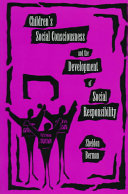
This book breaks new ground in our understanding of the development of social consciousness and social responsibility in young people and the educational practices that promote this development. Berman shows that children’s awareness of the social and political world emerges far earlier and their social and moral abilities are more advanced than we thought. Drawing on the research literature in such fields as moral development, citizenship education, political socialization, prosocial development, and psychosocial development, Berman provides educators and researchers with the developmental understandings and instructional strategies necessary to enable students to become active, caring, and responsible members of our social and political community.
“I believe this book pushes the field of educational and developmental psychology to a new level. It addresses some of the most pressing issues of our time..”. — Mary Field Belenky, University of Vermont, author of Women’s Ways of Knowing
“Berman pushes us to consider how more than service opportunities or isolated courses in contemporary issues will be needed if students are to become engaged citizens. In doing so, he lays the groundwork for a movement to reclaim the civic purposes that once undergirded American education. Achieving this end will require a transformation of curriculum, instruction, and school structures aimed at incorporating multiple perspectives, providing more room for student voices, and supporting the formation of interactive school communities in which students feel cared for and influential”. — Gregory Smith, Lewis and Clark College, author of Education and the Environment: Learning to Live with Limits
Promising Practices in Teaching Social Responsibility
Edited by Sheldon Berman and Phyllis LeFarge
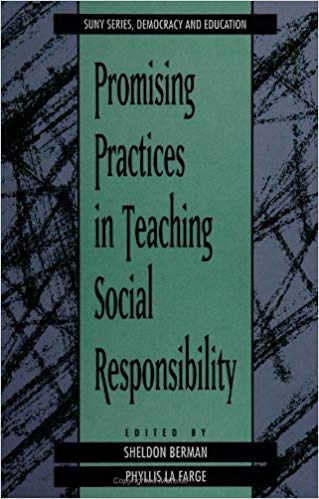
This book is by, for, and about teachers. It is a showcase for the innovative practices that teachers have found most effective in teaching social responsibility. The authors offer a rare discussion of actual classroom practices and the insights teachers have had in experimenting with new ways to help students develop conflict resolution skills and social responsibility.
“There is a strong message here for virtually any educator or person concerned about the survival of our world as a decent place for all its inhabitants. These shining examples can move teachers who feel the need to teach differently to a vision of teaching that is bound up with the hope of a just, caring, and participative society.” — Edward Mikel, National-Louis UniversityFor the past decade a movement has been going on in schools across the country that has escaped the notice of the mainstream press, the television talk shows, and officials in state and federal departments of education. It is a movement of teachers, administrators, parents, and students who are demanding something more of their schools than just higher test scores. Rather, what they want are schools that produce young people who can think well, are able to understand the world around them, have a sense of the common good, and the courage to make a difference.Promising Practices in Teaching Social Responsibility is about the daily work of classroom teachers trying to make their rooms places where social responsibility is nurtured and developed. It is a tour on which we are invited into a wide variety of classrooms where the promise of democratic life is sustained by the way in which children and adults are treated.”As I read this book, I often found myself thinking about my own children, ages 5 and 9, in these classrooms and what a joy it would be for them–and for me. It’s an opportunity every child (and parent) should have and I hope this book helps to create such classrooms and schools in communities across the country.”– George H. Wood, Ohio University, author of Schools That Work: America’s Most Innovative Public Education Programs
